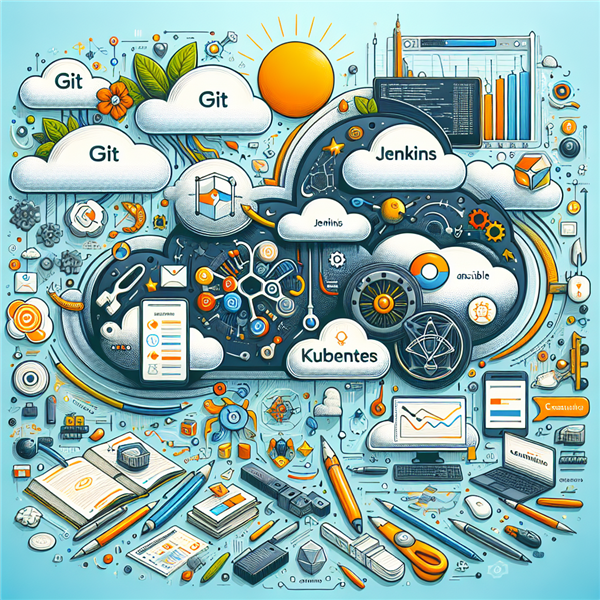Blog
In the rapidly evolving world of Information Technology,
DevOps has emerged as a powerful methodology that bridges the gap between software development and operations. Knowledge of popular DevOps tools like
Git,
Jenkins,
Kubernetes, and
Ansible has become a must-have for IT professionals. This blog explores these tools in detail, providing a comprehensive guide to mastering DevOps.
Understanding DevOpsDevOps is a practice that promotes collaboration between Development and Operations Team to deploy code to production faster in an automated and repeatable way. The emergence of DevOps is born from the collision of two major trends: the application of Agile and Lean methodologies to operations work and the move to cloud computing.
Mastering GitGit is a distributed version control system that is widely used for source code management. It provides features like branching and repositories, which make it easier for developers to collaborate. Mastering Git requires understanding its core features, including:
- Distributed version control system: Unlike centralized version control systems, Git allows multiple developers to work on a project without requiring constant connectivity to a central repository.
- Branching and Merging: Git’s branching model allows developers to work on different features simultaneously.
- Small and Fast: Git is designed to be fast and efficient, even for large projects.
Exploring JenkinsJenkins is a popular open-source tool used for continuous integration and continuous delivery. It enables developers to automate parts of the development process. Key features of Jenkins include:
- Easy Installation: Jenkins is a self-contained Java program, ready to run out-of-the-box.
- Extensible: Jenkins can be extended via its plugin architecture, providing nearly infinite possibilities for what Jenkins can do.
- Distributed: Jenkins can distribute build/test loads to multiple computers.
Understanding KubernetesKubernetes is a powerful open-source system for managing containerized applications in a clustered environment. It aims to provide better ways of managing related, distributed components across varied infrastructure. Key features include:
- Service discovery and load balancing: Kubernetes can expose a container using the DNS name or their own IP address.
- Storage orchestration: Kubernetes allows you to automatically mount a storage system of your choice.
- Automated rollouts and rollbacks: Kubernetes progressively rolls out changes to your application or its configuration.
Getting to Know AnsibleAnsible is an open-source automation tool that automates software provisioning, configuration management, and application deployment. It uses a simple syntax written in YAML called playbooks. Ansible features:
- Agentless: No agents/software or additional firewall ports are needed on the client systems you want to automate.
- Powerful and flexible: Ansible manages or automates anything that can be described via standard YAML syntax.
- Efficient: With Ansible’s facts system, it retrieves and remembers information about systems that it manages.
To truly master DevOps and these four tools, it requires hands-on experience and practical knowledge.
Koenig Solutions, a leading IT training company, provides an extensive training course that covers Git, Jenkins, Kubernetes, and Ansible. It offers a practical and comprehensive approach to mastering DevOps, ensuring that IT professionals are up-to-date with the latest practices and technologies.












